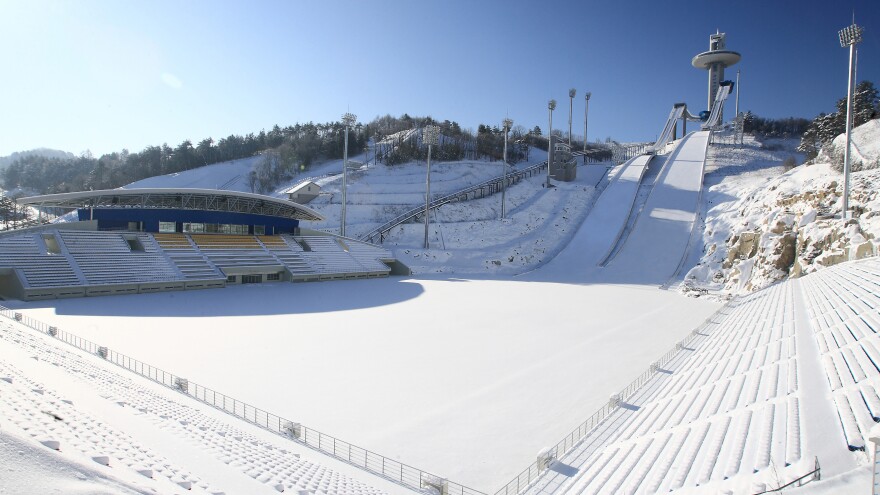Jeon Chung-won tends sheep on the hilly farm where he was born in PyeongChang, a rural county a few hours' drive east of South Korea's capital Seoul.
"It's a simple, peaceful place where the mountain air hugs you," says Jeon, 32. "I really love this place."
Only a handful of domestic tourists typically come to PyeongChang, to hike green hills dotted with Buddhist temples or visit a small ski station nearby. But that is about to change.
Next year, this sprawling county of just 43,000 people will host the 2018 Winter Olympics, East Asia's first Winter Olympics to be held outside of Japan. The opening ceremony is set for Feb 9.

Even South Koreans might struggle to find PyeongChang on a map. It's 80 miles east of Seoul and 40 miles south of the de-militarized zone that separates North Korea and South Korea.
The county doesn't want to be confused with North Korea's capital city Pyongyang — so much so that PyeongChang altered the spelling of its name for its Olympic bid, capitalizing the 'C' in the middle. Nevertheless, a delegate to a recent conference there mistakenly flew to North Korea instead. Luckily, he was able to travel onward.
PyeongChang, not surprisingly, has been a favorite of elite athletes — marathoners and skiers who train in the hills. The town sits 2,300 feet above sea level, with clean mountain air and lots of seasonal snow.
"When I came here for the first time, this place was really undeveloped," says Bae Ji-young, 28, who moved here 15 years ago to train with South Korea's national cross-country ski team. "Normally we have a lot of heavy snow. So I climbed every mountain."
Bae has watched hundreds of buildings — hotels, restaurants and sports venues — shoot up over the course of three Olympic bids by PyeongChang. The third was successful.
"We hear a lot of stories about the Olympic Games, where they're still building things as athletes walk in," says Nancy Park, a spokeswoman for the PyeongChang Organizing Committee. "We don't have that situation."
She says 97 percent of the area's Olympic venues are already complete. Half of them were built for previous Olympic bids. Organizers are installing 5G for Internet access, and encouraging local taxi drivers to learn English.

The challenge, however, is the surrounding infrastructure — or lack thereof.
Single-lane mountain roads are being widened. There's no local airport. A high-speed rail link is being built from the capital Seoul. Eight months out, all of PyeongChang is like an obstacle course of orange cones.
And there's another possible hazard: North Korea, just 40 miles away.
North Korean athletes have been granted rare permission to drive across the DMZ to compete.
"As of yet, they don't have any qualified athletes, but if they do attend, they'll be staying in the Olympic village," Park says. "Obviously, there's a lot of attention on these North Korean athletes, but they are a symbol of the peace element of the Olympics."
When a North Korean propaganda balloon recently blew across the border, South Korean soldiers stationed near PyeongChang fired 90 machine gun rounds at it.
Residents say they're more worried about absorbing the estimated 80,000 Olympic tourists a day, come February. In addition to newly built hotels, tourists will have the option of booking accommodation in some of the dozens of Buddhist temples that dot the forested PyeongChang hills. Some of the temples date back to the 7th century and offer traditional Korean temple stays, in which visitors pray with Buddhist monks, sleep overnight and help prepare simple, locally grown meals.
A tour guide at one of the most famous temples, Woljeongsa, admits he's actually a Catholic but says he's proud to show off Korea's Buddhist past. Choi Du-yeol says he's been brushing up on Korean history in advance of receiving tourists for the Olympic Games.
"We're all working together to show off our tiny corner of Korea to the world," says Choi.
Copyright 2021 NPR. To see more, visit https://www.npr.org.







